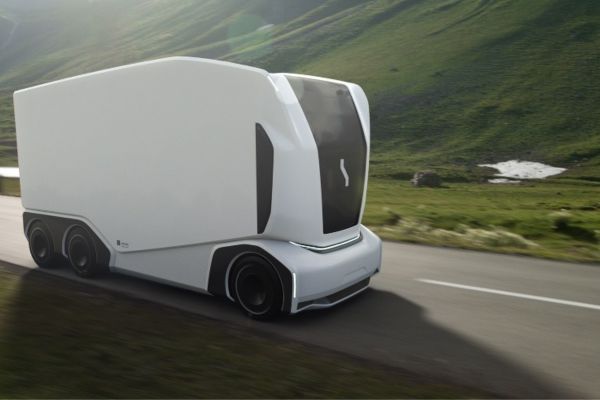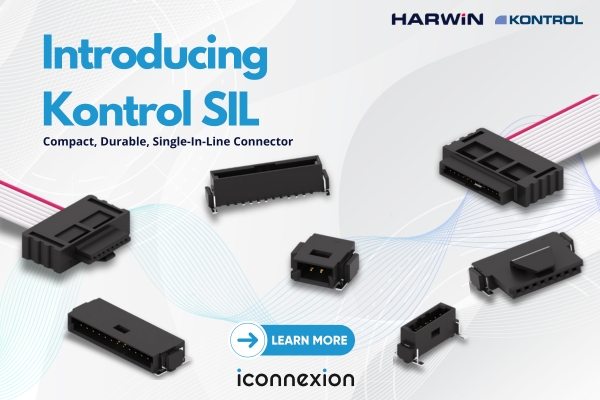The global autonomous trucks market size is valued at USD 1.48 billion in 2024 and is projected to attain around USD 7.42 billion by 2034 with a CAGR of 17.49%.
The autonomous trucks market is emerging as a transformative force in the global transportation and logistics sector. With the integration of artificial intelligence, advanced sensors, and connectivity technologies, autonomous trucks are capable of navigating, monitoring traffic conditions, and transporting goods with minimal or no human intervention.
These vehicles are designed to increase safety, reduce operational costs, and enhance efficiency—especially in long-haul freight. As logistics demands grow and automation becomes a priority, autonomous trucks are rapidly moving from pilot programs to real-world deployment.
Autonomous Trucks Market Key Insights
- North America is projected to grow at the fastest CAGR between 2024 and 2034.
- By type, the heavy-duty trucks segment holds the largest share of the market.
- By level of autonomy, the semi-autonomous segment accounts for the majority of the market.
- By ADAS feature, the blind spot detection segment records the highest market contribution.
- By component type, the sensors segment generates the largest share of the market.
- By drive type, electric vehicles capture the highest market share.
Driving Intelligence: The Role of AI in Autonomous Trucks
Artificial Intelligence plays a pivotal role in transforming the autonomous trucks market by enabling real-time decision-making, advanced perception, and predictive analytics. AI powers critical systems such as object detection, lane keeping, adaptive cruise control, and traffic pattern recognition. Through machine learning algorithms and sensor fusion, autonomous trucks can navigate complex road conditions, avoid obstacles, and optimize routes without human intervention, significantly enhancing safety and efficiency on highways.
In addition to driving capabilities, AI enhances the operational intelligence of autonomous trucks by enabling fleet management, predictive maintenance, and fuel optimization. By analysing data from sensors, GPS, and telematics, AI systems can predict mechanical issues before they occur, reduce downtime, and increase overall productivity. As AI continues to evolve, it is set to become the core enabler of fully autonomous, scalable, and intelligent logistics networks worldwide.
What Are Autonomous Trucks?
Autonomous trucks are self-driving commercial vehicles designed to transport goods with minimal or no human input. These trucks use a combination of advanced technologies, including artificial intelligence (AI), machine learning, GPS, radar, LiDAR, cameras, and sensors, to perceive their surroundings and make real-time driving decisions.
Depending on their level of autonomy—ranging from Level 1 (basic driver assistance) to Level 5 (fully autonomous with no human involvement)—they can handle tasks like braking, steering, lane-keeping, and navigating traffic independently.
Key Features
- Advanced Driver-Assistance Systems (ADAS) for safety and control
- Real-time data processing through AI and sensor fusion
- Long-haul capabilities with route optimization
- Remote monitoring and telematics integration
- Automated braking, acceleration, and steering
Benefits
- Increased Safety: Reduces accidents caused by human error
- Cost Efficiency: Cuts labor and fuel costs over time
- Continuous Operation: Enables 24/7 driving with no fatigue
- Logistics Optimization: Improves delivery times and supply chain reliability
- Environmental Impact: Supports electrification and emission reduction goals
Applications
- Freight and cargo transport
- Long-distance logistics
- Port and warehouse automation
- Industrial and mining haulage
Market Drivers
Several key factors are propelling the growth of the autonomous trucks market. These include the global shortage of professional drivers, the increasing demand for fast and efficient freight services, and the rising pressure to reduce human error in transportation.
Advancements in AI, 5G connectivity, and sensor technologies have made it possible to develop highly responsive and intelligent systems that can make real-time driving decisions. In addition, the drive to lower fuel consumption and maintenance costs has encouraged companies to invest in autonomous vehicle solutions.
Market Opportunities
The market presents numerous growth opportunities, particularly in long-distance transportation and fleet management. As technology matures, sectors such as e-commerce, retail, and manufacturing are showing growing interest in autonomous delivery solutions.
There’s also a strong push toward sustainability, creating space for electric autonomous trucks that reduce emissions. Furthermore, emerging markets offer vast potential for expansion as infrastructure and digital readiness improve, enabling new pilot projects and commercial use cases.
Market Challenges
Despite the promising outlook, the market faces several challenges. One of the primary concerns is the lack of a standardized regulatory framework across regions, which slows deployment. High development and deployment costs also pose barriers, particularly for smaller logistics operators.
Technical limitations in handling complex traffic situations, harsh weather, and urban environments remain problematic. Additionally, public skepticism and concerns about job displacement add to the resistance in fully adopting autonomous trucks.
Regional Insights
Asia-Pacific dominates the market, primarily driven by factors such as the increasing demand for safer and more efficient transportation, the need to reduce operating costs for fleet owners, and the development of advanced technologies such as AI and ADAS for autonomous driving.
Autonomous Trucks Market Companies:
- TuSimple, Inc. (San Diego, US)
- Waymo LLC (Mountain View, US)
- Embark Trucks (San Francisco, US)
- Tesla (California, US)
- Caterpillar (Illinois, US)
- AB Volvo (Gothenburg, Sweden)
- Daimler AG (Stuttgart, Germany)
- Continental AG (Hanover, Germany)
- Robert Bosch GmbH (Stuttgart, Germany)
- NVIDIA Corporation (Santa Clara, US)
- Aptiv (Dublin, Ireland)
Segments Covered in the Report:
By Types
- Light-duty Trucks
- Medium-duty Trucks
- Heavy-duty Trucks
By Level of Autonomy
- Semi-Autonomous
- Fully Autonomous
By ADAS
- Adaptive Cruise Control
- Lane Departure Warning
- Intelligent Park Assist
- Highway Pilot
- Automatic Emergency Braking
- Blind Spot Detection
- Traffic Jam Assist
- Lane Keeping Assist System
By Component Types
- LIDAR
- RADAR
- Camera
- Sensors
By Drive Type
- IC Engine
- Electric
- Hybrid
Source: https://www.precedenceresearch.com/autonomous-trucks-market
















